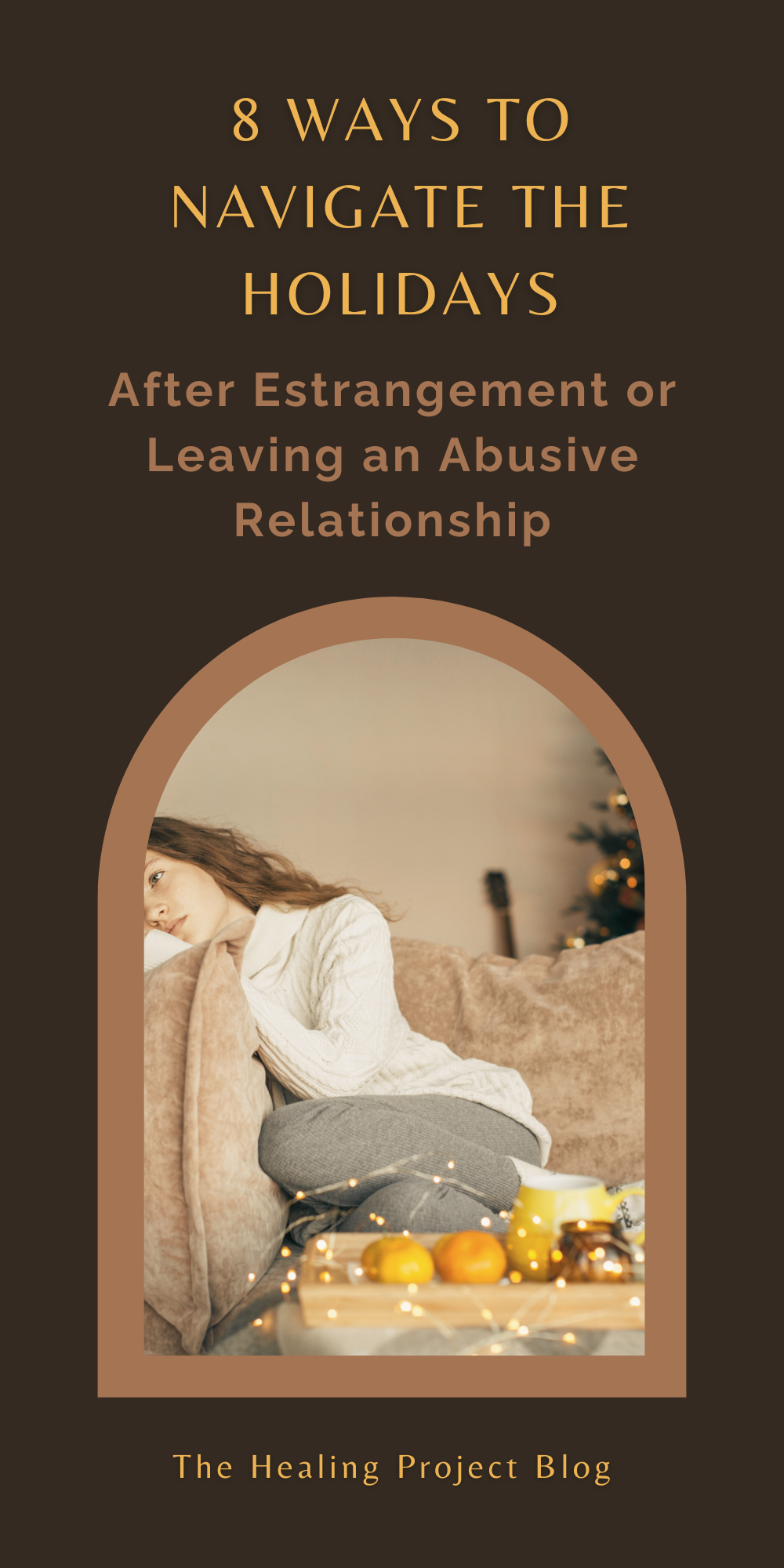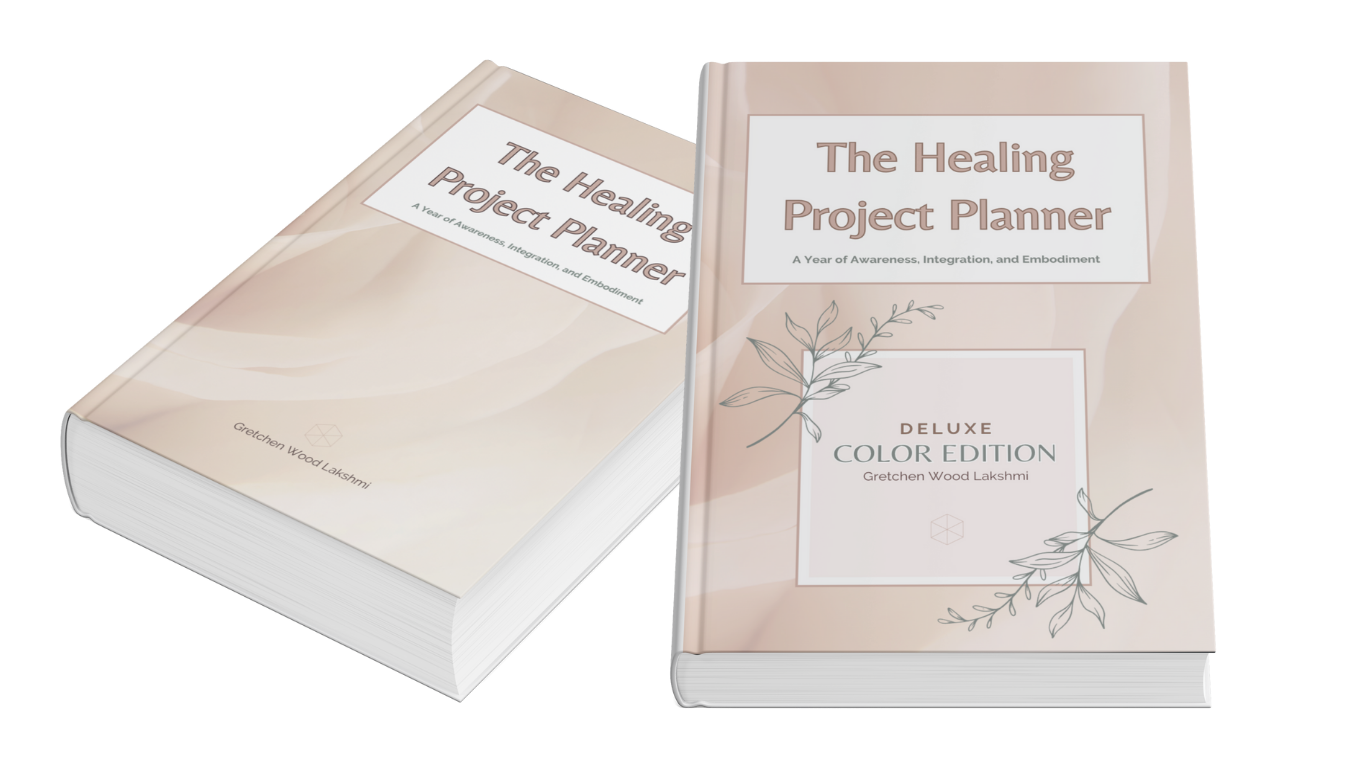8 Ways to Navigate the Holidays After Estrangement or Leaving an Abusive Relationship
The holiday season can bring a mix of joy, nostalgia, and, for many, heartache. For those who are estranged from family or spending their first holidays after leaving an abuser, this time of year can amplify feelings of grief, loss, and loneliness.
Whether you've made the painful decision to create distance from a toxic family system or have recently broken free from an abusive partner, it can be a challenge to navigate the holidays.
As a survivor of abuse and someone who has spent years of holidays estranged from family, I'm here to share that, with intention and self-compassion, it's possible to find moments of peace, connection, and even joy during this emotionally complex season.
This post offers tools, reflections, and ideas to help you process the emotions that may surface and begin to create holiday traditions that honor your healing journey.

1. Acknowledge and Allow Your Feelings
Holidays often stir up a whirlwind of emotions—grief for what you’ve lost, relief for what you’ve left behind, and even guilt or doubt about your choices.
You might find yourself missing the good moments from a toxic relationship or family dynamic while knowing you can never truly return to them.
Give yourself permission to feel it all without judgment. Journal, meditate, or talk to someone you trust. Emotions are messengers; they remind you of the depth of your experiences and the courage it took to choose your well-being.

2. Redefine What the Holidays Mean to You
Holidays don’t have to look the way they always have. Estrangement or leaving an abuser frees you to redefine what these seasons mean to you and how you want to celebrate them. Reflect on what brings you comfort, joy, or peace.
Maybe it’s a quiet day with your favorite movies, cooking a meal just for yourself, or starting a new tradition with friends who feel like chosen family. This is your time to create celebrations that reflect your values and bring you closer to yourself.

3. Establish Boundaries With Confidence
The holiday season can come with external pressures: invitations to gatherings you know aren’t healthy, unsolicited advice about forgiveness, or even guilt-tripping messages from toxic people.
Practice boundary-setting with kindness and clarity. Some examples:
- “Thank you for inviting me, but I won’t be attending this year.”
- “I’m focusing on my healing right now and can’t engage in this conversation.”
Remember, boundaries are for you. Give yourself permission to turn off notifications, say no, and prioritize what feels best for you.

4. Build Your Own Support System
If estrangement or leaving an abuser has left you feeling isolated, it’s a good idea to look for supportive connections. Reach out to friends, join local or online support groups, or volunteer in your community to meet others who share your values.
It’s not always easy to rebuild your social circle, but nurturing your chosen family or supportive friendships can transform the holidays into something deep and meaningful.

5. Honor Grief While Embracing New Joys
It’s okay to grieve what you’ve lost, even if leaving was the healthiest choice you could make. Set aside time to reflect on those feelings.
Light a candle in honor of your journey, write a letter to your former self, or create a ritual to release the pain while celebrating your growth.
At the same time, remain open to small joys—a warm cup of tea, laughter with a friend, or the feeling of wrapping yourself in a cozy blanket. Healing happens in the little moments.

6. Plan Ahead for Emotional Triggers
Certain holiday songs, foods, or traditions may bring up memories of the past. People may also try to tell you how you should participate, communicate, and interact with others. Anticipate these triggers and plan ways to care for yourself when they arise.
Create a toolkit for difficult moments that includes grounding exercises, a comforting playlist, or a list of supportive people you can reach out to. Preparation can turn potential breakdowns into breakthroughs.

7. Embrace the Power of Transformation
Both estrangement and leaving an abusive relationship mark profound turning points in life. These choices often come with pain but also with the promise of growth.
Pain, while it feels hard, is an incredible teacher. So, don't bypass it. They say we have to feel to heal and then let it go.
This transformation may feel uncomfortable and uncertain, but it’s leading you toward a life aligned with your values and needs. Hold on to the belief that, even in the darkness, you are moving closer to your own light.

8. Create Space for Gratitude and Celebration
Finally, allow yourself to celebrate the courage it took to make these changes. Even if your holidays look different this year, they’re a testament to your strength and resilience.
Focus on the things that bring you gratitude—a warm home, the kindness of a friend, or the simple fact that you’ve made it this far. Gratitude doesn’t erase pain, but it reminds us that light still exists, even in challenging times.
Wishing you a season of comfort and joy,
Gretchen
SOMATIC TRAUMA SPECIALIST + ENERGETIC INTUITIVE

SHARE ON PINTEREST







